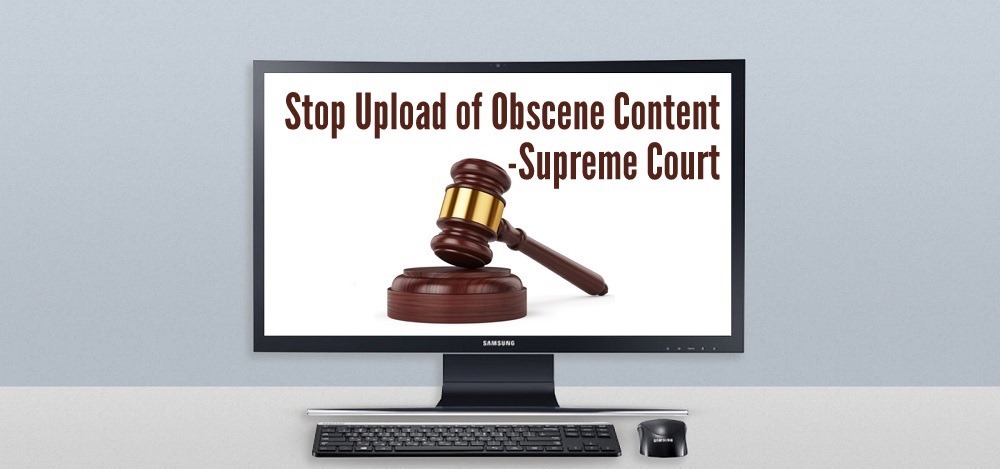Stop Upload Of ‘Obscene Content’ On Internet – Supreme Court Tells Google & ISPs

While hearing arguments of a case pertaining to ‘loss of dignity for women and children’ due to the objectionable content being uploaded online, Supreme Court posed an interesting challenge to Internet Service Providers (ISPs) and Internet companies: How can you stop uploading ‘obscene content’ on the Internet.
The bench comprising of Justices Madan B. Lokur and U.U. Lalit asked these questions while hearing a case which calls for banning all sexually abusive videos and content on the Internet, which undermines and violates integrity and dignity of women and children.
The Bench clearly stated that they are seeking prevention and not cure, when it comes to pornographic content online. Referring to various sections of the IT Act, the Court reminded ISPs and Internet companies that it is their duty to regulate and monitor online content.
The Bench asked, “Will it or will it not be conducive to prevent the uploading of such contents,”
As per the Court, once those users are identified, who upload such objectionable content, cases of ‘misinterpretation of facts and data’ can be charged against them.
Google Responds – Says Online Content Is Overwhelming
Sajan Poovayya, who is representing Google in this case, claimed that the amount of content being uploaded online is massive, and there exists no mechanism to filter and block the content before it is being uploaded.
And rightly so..
If we talk about Youtube alone, then around 300 hours of video content is being uploaded every minute on its platform, and globally, 30 million users access 5 billion videos every day.
However, Sajan assured the Apex court that their company is monitoring the abusive, sexual videos, and they are catalogued timely to remove objectionable content.
In a statement, Google said, “We already have mechanisms in place that allow users and authorities to report contents including videos that depict sexual violence against women and children and have them removed expeditiously. We also work closely with law enforcement agencies, as per due process of law, to identify the perpetrators,”
Google has assured complete cooperation with the Govt. assigned nodal agency which can work with ISPs and internet companies to flush out such content from the Internet.
The next hearing in this matter is on February 22, 2017.
SC To Google, Bing: Follow Indian Law, Ban Gender Test Ads
Meanwhile, in the case pertaining to gender test advertisements on Google and Bing, Supreme Court once again directed Google and Microsoft to completely ban all forms of gender discrimination advertisements on their platform.
In the month of July, Supreme Court had scolded Google and Bing for showing gender test advertisements and had ordered them to stop them immediately. In response, both Google and Microsoft had assured to the Apex Court in September, 2016 that such ads would be banned.
The current statements by the Court against gender tests is a reminder to Google and Bing against showing such advertisements, as gender tests are banned in India.
Justices Dipak Misra and R Banumathi said last week: “We reiterate our directions dated September 19, 2016 and further add that respondents number 3 to 5 (Google India Pvt Ltd, Yahoo India and Microsoft Corporation (I) Pvt Ltd) shall appoint an in-house expert body which shall take steps if any words or keywords that is shown on the internet and which has the potential to go counter to section 22 of Pre-Conception and Pre-Natal Diagnostic Techniques (PCPNDT) Act, 1994 shall be deleted forthwith,”
We will keep you updated as more details come in regarding this case.
Do you think Supreme Court should order filtering of content on the Internet? Do let us know by commenting right here.

..by all means, if someone is putting stuff with children on it on the internet, don’t just *ban* it….. -CASTRATE THEM!! …but please don’t ban the *good* stuff, though (can’t do without my xvideos)….. :)